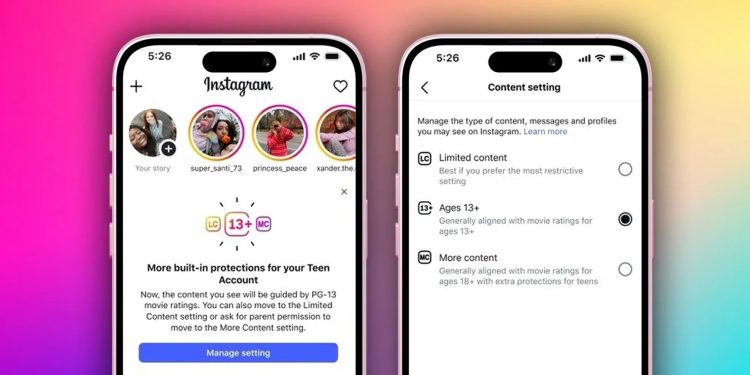Instagram will start limiting what users under 18 can see on the platform, introducing new content filters modeled after the PG-13 movie rating system. This is part of parent company Meta’s effort to address growing criticism that it has failed to protect teenagers online.
The new system will restrict posts containing strong language, risky stunts, drug references, or other mature themes, Meta said on Tuesday. The same rules will also apply to its AI-generated content tools.
The update comes after years of pressure from advocacy groups and ongoing lawsuits accusing Meta of failing to safeguard young users from harmful content — or misleading them about the psychological risks tied to its apps.
A report published in September found that many of Meta’s existing teen safety features on Instagram either don’t function properly or are missing altogether. Earlier in August, Reuters reported that Meta’s chatbots had been allowed to engage in “romantic or sensual” conversations before new restrictions were added.
In response, Meta rolled out AI safeguards for teenagers across its products, training its systems to avoid flirty exchanges and discussions about self-harm or suicide. That update followed a wider overhaul last year that improved privacy and parental controls for users under 18.
The new PG-13 settings will first launch in the U.S., UK, Australia, and Canada, with a full rollout expected by the end of the year. Meta also plans to extend similar protections to Facebook.
The company said it hopes the update will give parents greater confidence.
“We know teens may try to bypass these restrictions,” Meta said. “That’s why we’ll use age prediction technology to apply protections, even when users claim to be adults.”
Meta’s announcement comes as it, TikTok, and YouTube face hundreds of lawsuits filed by parents and school districts across the U.S., alleging that social media platforms are designed to be addictive and harmful to minors. U.S. regulators are also increasing scrutiny of AI chatbots over potential risks to young users.





















































